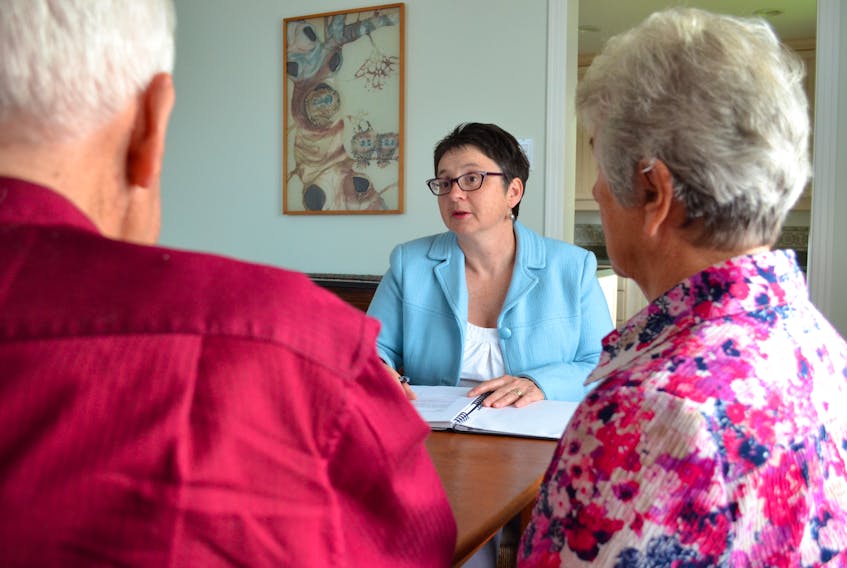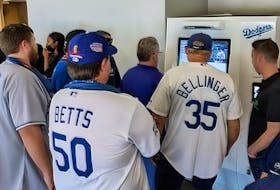Bill VanGorder says it’s been a tough time for East Coast seniors as COVID-19 continues keeping families apart across the country.
VanGorder is the chief policy officer at CARP (formerly Canadian Association for Retired Persons) and a Halifax, N.S.-based advocate for seniors. Pandemic isolation is something he says has caused concern with seniors’ families, as they cannot visit with their senior relatives the way they did before COVID-19. While in-person visits are possible within provinces right now, travel to see family members in other provinces or other parts of Canada is still limited by the pandemic.
But, VanGorder says, there are ways to keep in touch with and check in on senior relatives to ensure they don’t feel alone.
“Call them, and call them often – hearing someone’s voice helps to connect you with them,” he says.
Hard time for seniors, families
VanGorder says that with less than 10 per cent of seniors living in long-term care homes, many are spending more time isolated at home than before the pandemic. He says it's been extremely difficult for families to stay in touch and to offer the kind of help and support they did before the pandemic.
“People forget that most seniors don’t live in long-term care. Most are out in the community, living independently,” says VanGorder. “These are the folks who are most isolated by the pandemic.”
It’s a view shared by Lori Weeks, an associate professor at Dalhousie University and an expert in gerontology. Weeks continues to research aging, care options, and support for seniors and their caregivers, and says that isolation was identified as an issue long before the outbreak of COVID-19.
With the pandemic leaving people more isolated than ever, Weeks says this means the problem has become much worse, with many families unable to see their elderly relatives in person.
“It has been challenging for people, especially for those not living close by or within the same bubble, to see their older relatives,” says Weeks. “Many seniors don’t live in close connection to their relatives in Canada and live in small households, which is different from other areas around the world.”

Monitoring changes
Video calls can help families reach out and check in on their relatives during these times of increased isolation, according to Marie-Claire Chartrand of Greywave, who helps families navigate the health and long-term care systems.
Checking in is vital in maintaining a connection with seniors and in monitoring their physical and mental health, she says, and scheduling daily video calls will help indicate any day-to-day changes to families.
“Are they clean? How are they moving? Are their clothes changed, do they look like they’ve lost weight, what are their facial expressions telling you? These can indicate physical and mental health,” she says.
Chartrand says calling regularly not only helps a family monitor their loved one’s health, but also helps seniors establish a routine – something she says helps to curb depression – and gives them something to look forward to each day.
“Checking in and calling is the best thing you can do right now,” she says. “Try to help them find hope – ask them how they’re feeling and help them work through it.”
If family members do notice any potential red flags during these calls, Weeks says that when in doubt, it's always best to contact a primary care physician or nurse who can do an assessment and make any needed referrals.
“Families can now access these appointments virtually or by phone, which has been very helpful for seniors, especially those with mobility issues,” she says.

Make it an event
Weeks’ family operates an assisted living centre in Prince Edward Island, where they’ve connected residents with their families via video technology when public health protocols limited in-person visiting.
The centre also hosted a virtual Christmas party over Zoom so families could tune in and connected with their loved ones.
She says these calls helped residents feel connected with their families at a time when their personal social networks - like their religious groups, social activities, and outings with friends - have largely been stopped due to COVID-19 pandemic.
“These being reduced, alongside connections with friends and their family, really is a double whammy,” says Weeks.
CARP suggests connecting with seniors over an activity, VanGorder says, whether from a distance or virtually, as many seniors now have access to technology like computers, tablets, or smartphones.
When in doubt, rely on old faithful: the telephone, something he says nearly every senior can access.
“I know a woman teaching her granddaughter to bake over the phone. I also know a man who is writing stories online and through email with his grandchildren and feels connected with them through that,” says VanGorder.
“Do something together – this makes it an event rather than a quick hello.”









